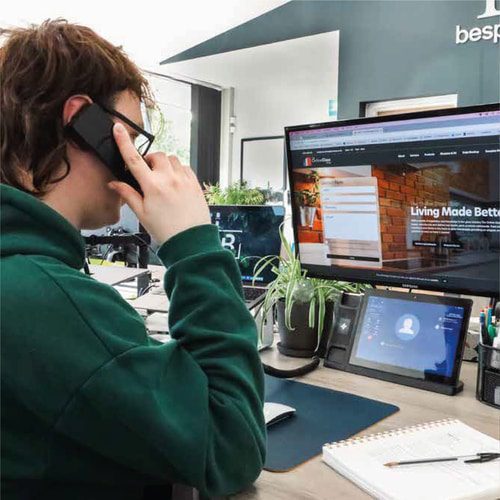How to improve usability in web design
Web usability is more than just being user-friendly or easy-to-use as it is commonly known. It means designing your website that is user-centered.
To make your website give a good and lasting impression, you need to consider building experiences for your visitors that are beyond mere and usable. It should have features and elements that make the users spend maximum time on your website.
Here are some principles of website design in order to improve your usability and user experience, according to our own website design company in Manchester.
It should be easily accessible and available
The main facet of usability is accessibility and availability. You may have gained visitors on your website, but what is it worth having if it doesn’t work. Not only the visitors will be annoyed, but you will also lose them and revenue.
Make sure there is no error when the users try to load your website. See that there are no broken or dead links on the site. Also, ensure that slow connections and various screen sizes are not factors hindering from opening your site.
Make your content clear
Another essential aspect of usability is how clear your content is. Confusing or distracting your visitors isn’t going to create that impression you want to leave on them. Not having clarity on your site will only leave the users dissatisfied and trust us, they wouldn’t want to come back either!
Your job and aim are to help the visitors reach the goals they had in mind when they clicked on your site- as soon as possible. You can achieve clarity through the following:
Easy to learn
When you are trying to make your website usable, design a content that doesn’t take a long time to understand. Intuitive interface should be the goal while creating content. The users on your website should be able to catch what your website has to offer quickly.
People now are quite familiar with various concepts on the net. By using these familiar concepts frequently, your website gets more attention. After all, humans respond better to familiar concepts than unfamiliar ones.
While using new concepts, ensure that you are consistently using them. Help people with learning in the initial phase. You can include instructions or additional info if it’s their first time using your website.
Reliability
Having good content is essential, but it can all go useless if people don’t trust your website. Visitors can become skeptical if your website doesn’t have a good reputation or if its quality isn’t up to the standards.
Adding an “about us” section, the details of your contact or even a physical address is essential to let people know that you are real and have a real business. Although your content plays a crucial role in adding trustworthiness, be sure that you are honest in every aspect of your site.
Silly grammatical mistakes and misspellings are a turn-off to people who are looking for quality websites. Also, ensure that people know you are an expert at what you do. It is not the right platform to be modest about it!
Don’t forget to test
Good usability needs thorough research, refining, and constant testing. You cannot be certain about your website’s usability unless you test it. You can ask someone to check out your website and ask for their first impression. You can also take the help of paid services that can give you feedback on your website’s usability.
Conclusion
Usability means making website navigation easy for your users, in the meantime, not forgetting your goals. Usability has several aspects but stick to your overall goal. When you are looking at your website, see if all the pages are consistent, if the navigation is quick, and if there are any ways to improve it.
As it all comes down to whether visitors are staying on your site or leaving, you should consider the importance of usability of your content






